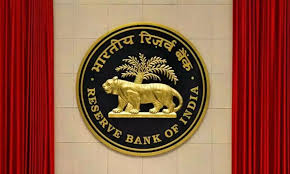What Does RBI Maintaining the Repo Rate Mean For Your Home Loan?
The Reserve Bank of India held the report rate constant on Friday as was widely anticipated in the sector.
The decision to maintain the repo rate at 6.5 percent was made by the monetary policy committee, according to RBI Governor Shaktikanta Das, who made the announcement.
He continued by saying that the MPC would continue to monitor inflation and that it is steadfast in its resolve to bring inflation under control.
The six-member MPC, led by the governor of the RBI, released its bi-monthly statement of monetary policy today.
Following the Russia-Ukraine conflict, the RBI began gradually raising the policy rate in May 2022, and in February of this year, it was raised to 6.5 percent. The rate has remained steady ever since in the previous three bimonthly reviews of monetary policy.
Between May 2022 and February 2023, there was a total 250 basis point increase in the repo rate.
In the past, analysts predicted that the would keep the benchmark interest rate unchanged at its bimonthly monetary policy review due to high inflation and external factors.
Effect on homebuyers and how the repo rate affects the cost of house loans
Home loan applicants and those who are currently making EMI payments will likely feel some comfort from the status quo since the disbursements will remain the same.
“The unchanged repo rate is a festive bonanza for homebuyers and gives them yet another opportunity to make cost-effective home purchases,” said Anuj Puri, head of the Anarock Group. If we look at the current trends, the consumer market generally seems positive across all industries, especially the housing and car markets, which in many respects mirror the state of the economy. The home market will rise significantly as a result of the interest rates being steady as we go into the holiday quarter with extremely high momentum in house sales.
According to Shishir Baijal, chairman and managing director of Knight Frank India, a break would help the real estate industry keep up its present speed. The base lending rate increased by 160 bps as a consequence of the most recent adjustments, which saw a 250 BPS increase in the repo rate. The latest three revisions were entirely passed on to homebuyers.
“This has begun to have an effect on home demand, particularly in the cheaper class. In recent quarters, growth in the mid category has also slowed down. Additional REPO rate increases might possibly reduce buyer confidence and affect house affordability, according to Baijal.
“We welcome RBI’s decision to maintain status quo as it helps in holding the interest rates and sustaining the growth momentum in the real estate sector,” said Ramani Sastri, Chairman and MD of Sterling Developers. However, a further decrease in the benchmark interest rates would be generally welcomed since low interest rates have played a significant role in the recovery of the real estate market as a whole and the restoration of the sector’s important liquidity condition. Overall, we think that this trend is anticipated to continue far into 2024, as well as the rest of this year.
How are house loan EMIs impacted by the repo rate?
The interest rate at which the central bank (RBI) loans money to commercial banks is known as the repo rate. The RBI utilizes it as a fundamental monetary policy tool to manage inflation and economic expansion.
Banks are required to pay more when borrowing money from the RBI due to a rise in the repo rate. Due to this, banks’ cost of capital rises, which in turn causes interest rates on loans, including mortgages, to rise.
How do changes in MPC rates affect mortgages?
Home loans may be significantly impacted by a change in the MPC rate. Commercial banks would pay more to borrow money from the RBI if the MPC raises the repo rate. As a result, banks will incur higher funding costs, which will raise the cost of borrowing money overall and raise interest rates on loans, including mortgages.
What kind of mortgage loan would be influenced by the change in MPC repo rate?
A change in the MPC rate will affect all home loans with variable rates. Home loans with floating rates are dependent on the repo rate, therefore any changes to the repo rate will affect the loan’s interest rate.
On the other hand, changes in MPC rates have no effect on house loans with fixed rates. This is due to the fact that the interest rate on a fixed-rate mortgage is set for a certain amount of time, often 1 to 5 years.
What options do borrowers have for coping with rising MPC and house loan interest rates?
Borrowers could be faced with higher monthly payments and greater total borrowing expenses if the repo rate rises and follows suit with home loan interest rates.
Depending on specific circumstances, the best course of action may differ, so it’s important to thoroughly consider all of your alternatives and how they can affect your entire financial status.
You may wish to get expert counsel from a financial counselor if you are having trouble managing your debt.







